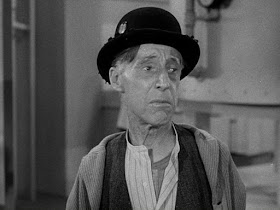 |
| George Maharis and Anne Francis |
Lee Barrett (George Maharis of Sylvia) is called in when several vials are stolen from a government lab. Some of these vials contain a deadly virus that can cause many deaths but will eventually die out itself. But one of the vials contains what scientists have termed "the Satan bug," an airborne, self-perpetuating, basically indestructible virus that can wipe out all of humanity within the space of two months! Barrett learns that a wealthy and mysterious man named Ainsley may be behind the theft after he makes certain demands, but he also fears that this mastermind may have a confederate in the lab. To show he means business Ainsley unleashes the "less" deadly virus on Florida, killing many innocent inhabitants. Now Barrett has to find the flasks and get them away from Ainsley and his associates before the worst can happen.
 |
| John Clarke, George Maharis, Simon Oakland |
The film does have its moments. There's a tense business when Barrett enters a lab with a mouse with the realization that if the little creature dies he will have to be shot moments later to protect everyone else. There's the black and white footage the characters watch as a helicopter flies over the corpses all over the ground in Florida. Then there's a wild fight in a careening helicopter. But much of the suspense is minimized by poor pacing and sequences that don't add to the excitement but seem to detract from it. Still, The Satan Bug is undeniably creepy and generally absorbing. Sturges also directed Jeopardy. A much better film on a somewhat similar theme is the excellent Andromeda Strain.
Verdict: Just misses being a really top-notch thriller. **3/4.


































